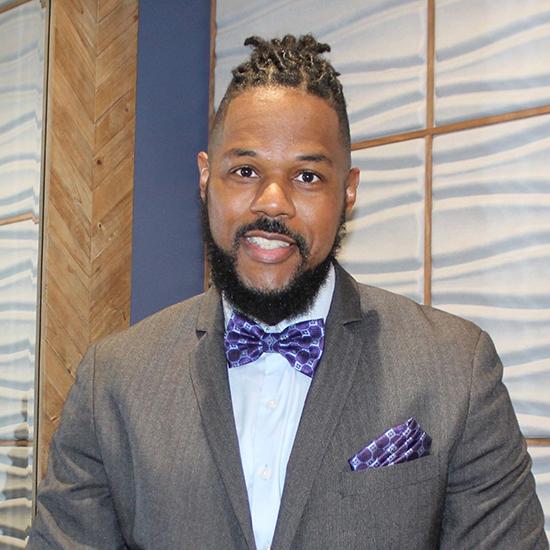GSEP Associate Professor, Dr. Erlanger Turner Publishes Article on Breaking Barriers: Mental Health for Black Men

In a noteworthy stride towards addressing the mental health disparities faced by incarcerated Black men, the Graduate School of Education and Psychology's very own Dr. Erlanger Turner has made a significant contribution. As the director of the Race and Cultural Experiences research lab, Dr. Turner's focus on understanding the barriers and facilitators of mental health treatment use among diverse communities has led to a recent publication that we couldn't be prouder of.
The publication, co-authored by Dr. Turner along with his accomplished mentees, Abdul Haseeb, BS, a dedicated post-baccalaureate research assistant, and Courtland Douglas, MA, a PhD candidate in the counseling psychology program at Howard University.
Their article, titled Predictors of Seeking Mental Health Treatment in Black Men: Therapy Fears and Expectations About Counseling, was recently published in the prestigious Community Mental Health Journal. The core of this research delved into the critical factors influencing the utilization of mental health care services among incarcerated Black males.
The study involved 76 participants, all of whom self-identified as Black Americans and were carefully selected from within a correctional facility. In their pursuit to better understand the predictors of mental health treatment, Dr. Turner, Courtland Douglas, and Abdul Haseeb conducted a meticulous analysis of the data gathered from these participants.
The results of their study, which drew from secondary data analysis, have shed light on the unique challenges and opportunities in mental health treatment for Black men during their incarceration. One key finding highlighted that Black men with a mental health diagnosis were more likely to receive mental health treatment while incarcerated compared to those without a diagnosis. “Turner notes that “this is important because traditionally men under-utilize services and one step towards receiving care is having an accurate diagnosis.”
Furthermore, their research pointed to the significance of expectations about treatment, particularly personal commitment, as a vital predictor of current mental health treatment use. According to Dr. Turner, “When individuals have a high degree of personal commitment, they are more prepared to discuss their concerns and emotions in therapy.” Notably, “in this sample,” therapy fears did not significantly influence the decision to seek treatment.
The implications of this research are far-reaching and hold great promise for both research and practice in the field of mental health treatment, especially concerning incarcerated Black men. The findings underscore the importance of addressing expectations about treatment and providing valuable insights for clinicians, correctional facilities, and policymakers.
This proud publication is a testament to the dedication and commitment of Dr. Erlanger Turner and his mentees, Courtland Douglas and Abdul Haseeb, in contributing to the broader conversation on mental health disparities and access to care within diverse communities. Their work is bound to make a meaningful impact on the way mental health services are provided to incarcerated Black men, setting a positive trajectory for future research and practice.